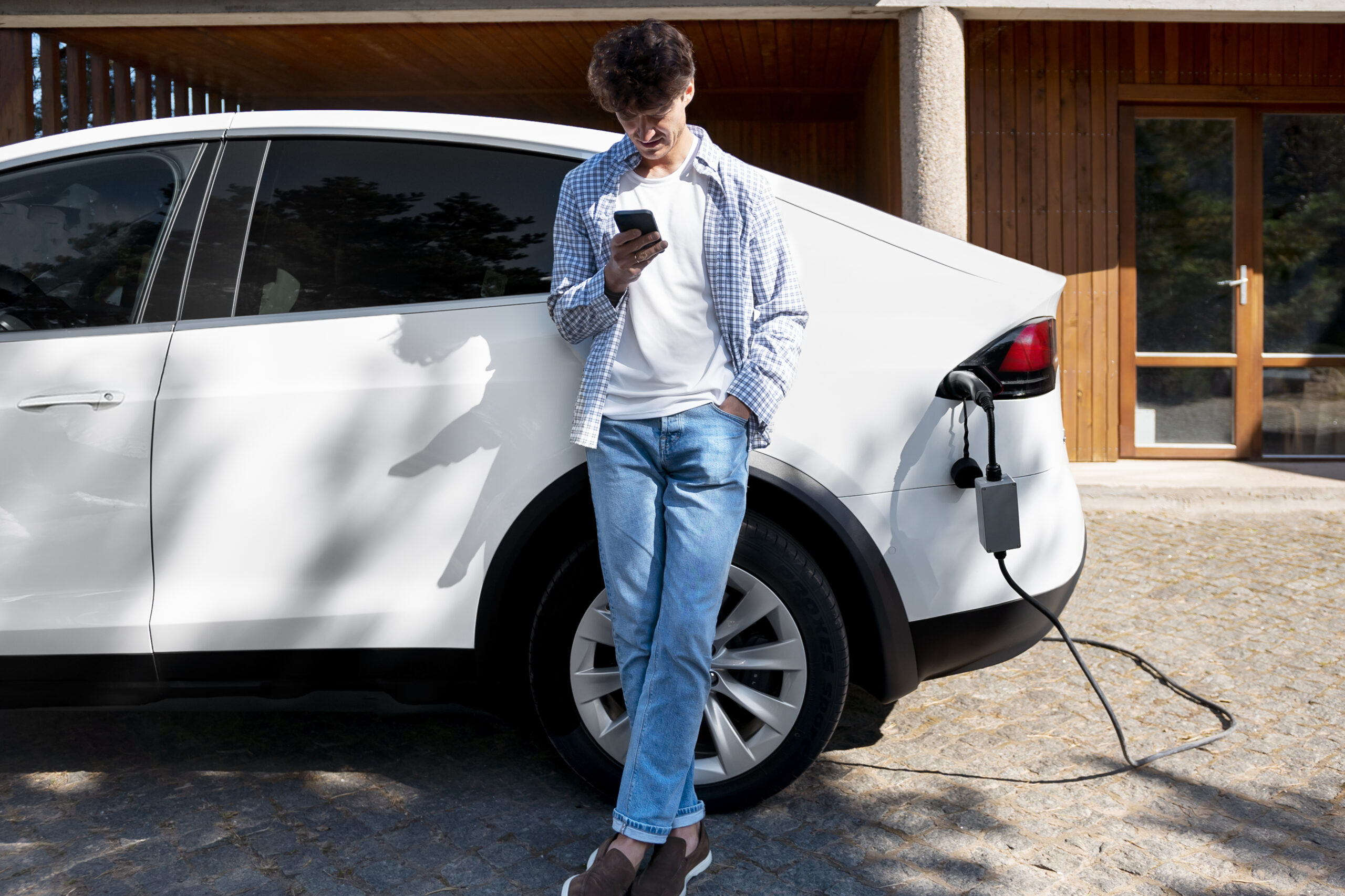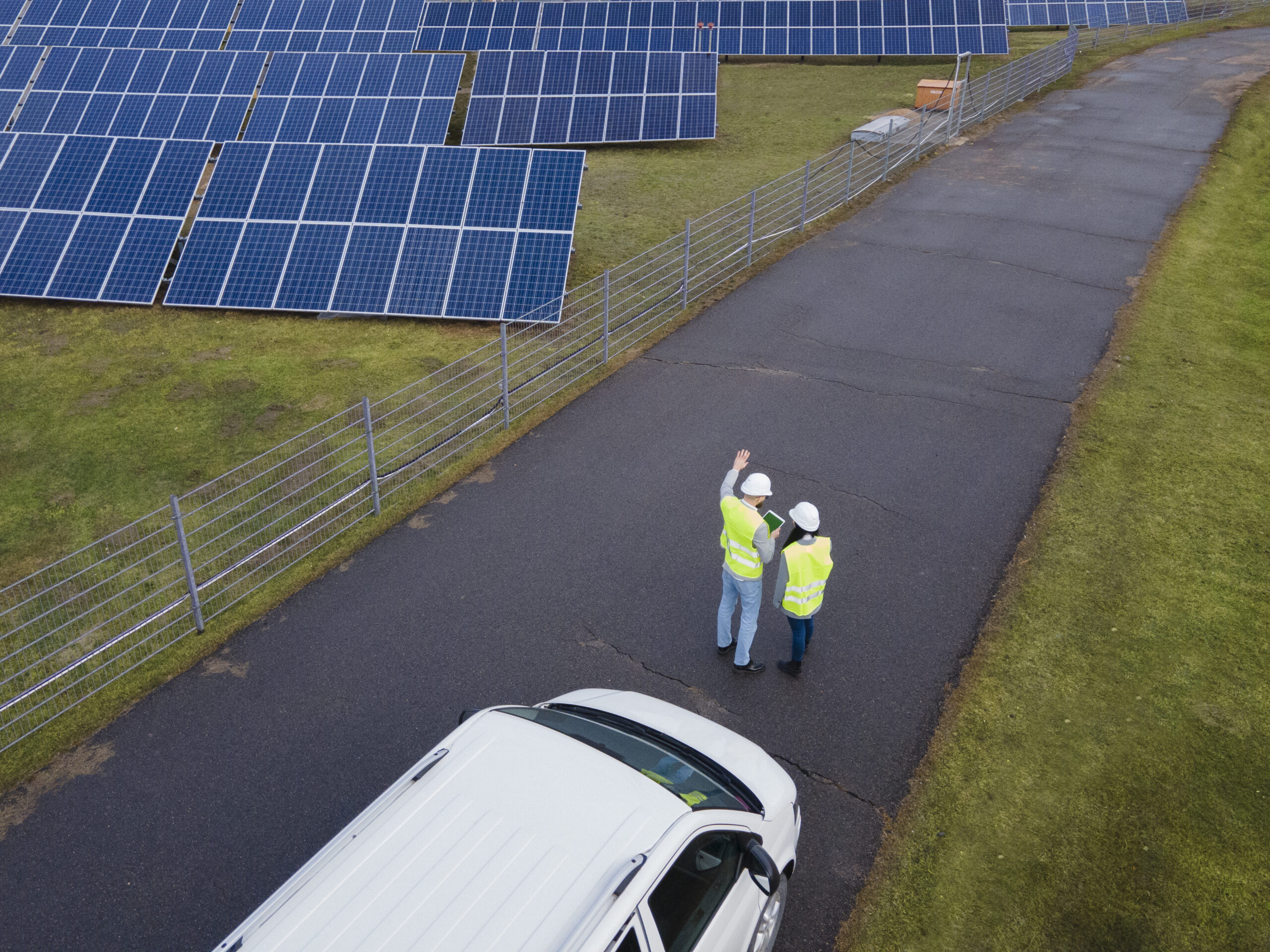When you embark on a thrilling RV adventure, staying connected to the modern world while enjoying the great outdoors is essential. However, limited access to electrical hookups can be a challenge. That’s where the solar charger for RVs cames to the rescue! These innovative devices harness the power of the sun to provide you with a sustainable and eco-friendly energy source. In this comprehensive guide, we will explore everything you need to know about solar chargers for RVs, helping you make an informed decision that suits your specific needs.
Solar Charger for RV: Embracing the Power of the Sun
As a nomadic traveler or avid camper, having a reliable power source is crucial for staying connected, running appliances, and enjoying a comfortable journey. Solar chargers for RVs have become increasingly popular due to their ability to capture sunlight and convert it into usable electricity. They are an eco-conscious alternative to traditional power sources, reducing your carbon footprint while keeping your RV’s batteries charged.

The Advantages of Solar Chargers for RVs
Solar chargers offer numerous benefits for RV owners, making them a worthwhile investment for your outdoor adventures:
1. Harnessing Renewable Energy
Solar chargers tap into an endless and renewable energy source—the sun. With abundant sunlight available in most places, you can continuously generate electricity to power your RV’s appliances, lights, and gadgets.
2. Cost-Effective Solution
Once installed, solar chargers provide free energy, significantly reducing your reliance on expensive fuel or traditional power hookups at campsites. They offer long-term savings and quickly recoup their initial cost.
3. Eco-Friendly and Sustainable
By opting for solar energy, you contribute to a greener planet and reduce your dependence on fossil fuels. Solar chargers produce clean energy, reducing greenhouse gas emissions and helping combat climate change.
4. Versatility and Mobility
Solar chargers for RVs are designed to be portable and lightweight, making them easy to set up and take down as you move from one destination to another. They don’t require a permanent installation and can be used in various locations.
5. Low Maintenance
Once installed, solar chargers generally require minimal maintenance. Routine cleaning and occasional checks on connections ensure their optimal performance.
6. Quiet and Pollution-Free Operation
Unlike traditional generators, solar chargers operate silently and without producing harmful emissions, allowing you to enjoy a peaceful and pollution-free environment while camping.
Understanding How Solar Chargers Work for RVs
To make an informed decision about choosing the right solar charger for your RV, it’s essential to understand how these devices work.
The Photovoltaic (PV) Process
Solar chargers use photovoltaic (PV) cells to convert sunlight into electricity. When sunlight hits these cells, they create an electric field across multiple layers, producing direct current (DC) electricity.

The Charge Controller
The charge controller regulates the flow of electricity from the solar panels to the batteries. It prevents overcharging, ensuring the batteries remain healthy and prolonging their lifespan.
The Battery Bank
Solar chargers store excess energy in battery banks. These batteries can store electricity for later use, such as during the night or on cloudy days when sunlight is limited.
The Inverter
The inverter is responsible for converting DC electricity from the battery bank into alternating current (AC) electricity, which is what most household appliances and electronics use.
Selecting the Right Solar Charger for Your RV
Not all solar chargers are created equal, and finding the perfect fit for your RV’s energy needs is crucial. Consider the following factors when choosing the right solar charger:
1. Power Output
Evaluate your energy requirements by considering the appliances and devices you intend to power. Calculate the total wattage needed to determine the appropriate solar charger’s power output.
2. Panel Efficiency
Efficiency matters when it comes to solar panels. Higher efficiency panels generate more electricity from the same amount of sunlight, making them ideal for limited roof space on an RV.
3. Size and Weight
For RV applications, space and weight are valuable commodities. Opt for lightweight and compact solar chargers that won’t add excessive weight to your vehicle.
4. Durability and Weather Resistance
Your solar charger will be exposed to various weather conditions during your travels. Look for models designed with durability and weather resistance in mind to withstand the elements.
5. Expandability
If you plan to increase your RV’s solar power capacity in the future, opt for a system that allows easy expansion by adding more panels or batteries.
6. Installation Options
Consider how you want to install the solar charger. Some chargers come with mounting brackets for roof installation, while others can be set up on the ground.
Solar Charger for RV: Top Recommendations
To help you kick-start your solar-powered adventure, we’ve compiled a list of top-notch solar chargers for RVs:
| Solar Charger Model | Power Output (Watts) | Panel Efficiency (%) | Weight (lbs) | Expandability |
|---|---|---|---|---|
| SunPower RV Solar Kit | 100 | 22.5 | 26.3 | Yes |
| Renogy Solar Starter Kit | 200 | 19.5 | 31 | Yes |
| HQST Monocrystalline Solar Panel | 100 | 21 | 16.5 | Yes |
| Go Power! Weekender SW Complete Solar Kit | 160 | 15.4 | 58 | Yes |
| Newpowa Polycrystalline Solar Panel | 100 | 18.5 | 16.5 | Yes |
Installation Tips for Solar Chargers in Your RV
Installing a solar charger in your RV may seem intimidating, but with proper guidance, it can be a rewarding DIY project. Follow these steps for a successful installation:
1. Calculate Energy Needs
Determine your energy needs by assessing the appliances and electronics you’ll be powering with the solar charger. This will help you choose the appropriate solar panel size and battery capacity.
2. Choose the Right Location
Select a location on your RV’s roof or on the ground that receives the most sunlight throughout the day. Avoid shading from nearby objects, such as tree branches, satellite dishes, or roof vents.
3. Mounting the Solar Panels
Use the appropriate mounting brackets and hardware to secure the solar panels in place. Follow the manufacturer’s instructions carefully to ensure a secure and stable installation.
4. Connect the Charge Controller and Battery Bank
Connect the charge controller to the solar panels and the battery bank. Ensure the connections are secure and properly insulated to prevent any accidents or malfunctions.
5. Test the System
Before hitting the road, test the solar charger system to ensure everything is functioning correctly. Check the voltage, charge levels, and any connected appliances.
6. Regular Maintenance
Perform regular checks on the solar panels, charge controller, and battery bank. Keep the panels clean and free from debris to maintain their efficiency.
Conclusion
Investing in a solar charger for your RV is a smart decision that not only saves money but also contributes to a greener and more sustainable environment. By harnessing the power of the sun, you can enjoy off-grid adventures without compromising on comfort and connectivity. Consider your energy needs, research different solar charger models, and follow proper installation guidelines to embark on an eco-friendly journey with a reliable power source. So, gear up your RV with a solar charger and let the sun power your adventures!
